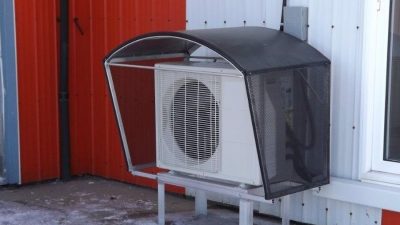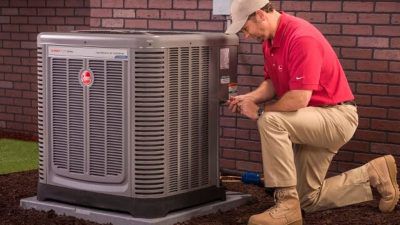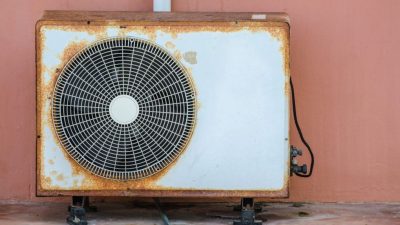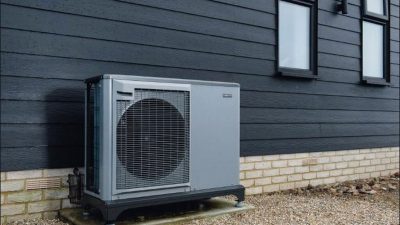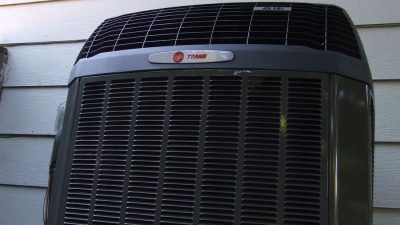Heat pumps are becoming increasingly popular as an efficient way to heat and cool homes. But one of the most common questions we all have is: Are heat pumps noisy? We’re all familiar with the sound of an air conditioner running, so it can be difficult to trust that a heat pump won’t make just as much noise.
The good news is that modern heat pump technology has come a long way in terms of noise reduction. In fact, manufacturers have made huge strides in developing quieter models that are still incredibly efficient. If you’re thinking about getting a heat pump for your home, you don’t need to worry about dealing with loud noises disrupting your peace and quiet.
In this article we’ll explore exactly how quiet modern heat pumps are and what’s being done to ensure they run quietly and efficiently. We’ll also look at how you can choose the right model for your home and what to do if you’re worried about noise levels. So read on to find out more about the latest developments in heat pump technology and how they could help make your home more comfortable!
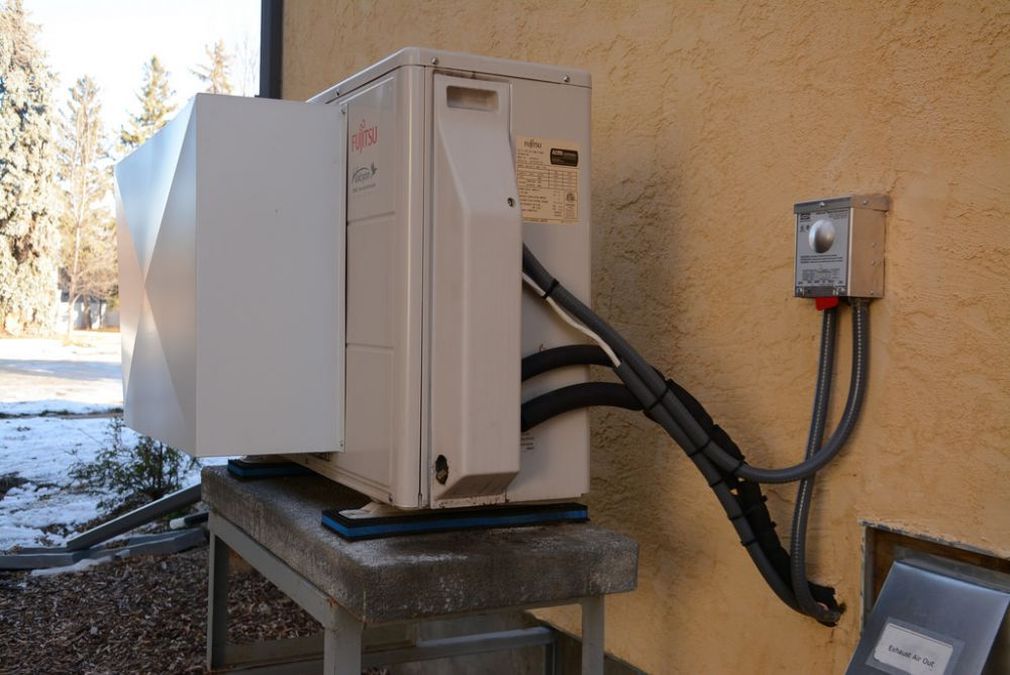
Sources Of Noise
Heat pumps can be noisy, but understanding where the noise is coming from can help homeowners find solutions. Common sources of heat pump noise include the indoor unit’s compressor, fan blades, and refrigerant flow. The outdoor unit also has a fan and compressor that could be contributing to the sound levels. Depending on how well soundproofed the units are, these components could cause loud noises that disrupt an otherwise peaceful home.
Fortunately, there are ways to reduce the noise of a heat pump. For example, soundproofing materials such as acoustic foam or felt can be used to cover the indoor and outdoor units for improved insulation. Additionally, some heat pump models come with built-in noise reduction strategies like vibration dampeners or low-noise fans. Lastly, repositioning either unit can help minimize sound by changing its angle in relation to other surfaces in its environment.
All of these strategies can help homeowners create a more peaceful environment while still enjoying all of the benefits that come with having a high-efficiency heat pump system installed in their homes.
Types Of Heat Pumps
Heat pumps are excellent solutions for efficient heating and cooling, but are they noisy? The answer is no! Heat pumps come in a variety of types, each with its own benefits and advantages. Let’s explore the different types of heat pumps available:
- Geothermal Heat Pumps
- Air Source Heat Pumps
- Ductless Heat Pumps
- Water Source Heat Pumps
- Ground Source Heat Pumps
Geothermal heat pumps draw from the earth’s natural warmth to provide efficient heating and cooling. Air source heat pumps can be mounted outside on a wall or roof and use air as their energy source. Ductless heat pumps work similarly to air source systems, but don’t require any ductwork installation as they operate through individual units that are mounted on walls. Water source heat pumps transfer energy between a body of water and a living space, making them perfect for homes near lakes or rivers. Lastly, ground source heat pumps utilize the ground’s thermal energy to provide both heating and cooling in one system.
Each type of heat pump offers unique features that make them an ideal choice for many households. They are reliable and cost-effective, while providing a safe and comfortable environment year-round. Moreover, these systems are designed to be quiet, making them perfect for any home or business looking for an efficient way to regulate temperature without noise pollution.
Design Considerations
Heat pumps are designed to provide efficient heating and cooling solutions for homes and businesses. However, the noise generated by these systems can be a concern for some customers. To address this issue, heat pump design must prioritize noise reduction techniques in order to minimize noise levels.
There are several strategies that designers can use to reduce the amount of noise emitted by a heat pump. For example, soundproofing material can be used around the unit to dampen any noise that is generated. Additionally, manufacturers can also incorporate structural designs that absorb sound waves and reduce their intensity before they reach the outside environment. Other methods include adding additional insulation or baffles to further reduce sound levels.
Noise mitigation strategies should also be considered when selecting a heat pump system for a home or business. Heat pumps with lower decibel ratings will typically generate less noise than those with higher ratings. It’s important to consider the placement of the unit as well – placing it far away from living spaces or outdoor areas can help keep it out of earshot. Additionally, purchasing a high-quality model from a reputable manufacturer can also help ensure that operational noises remain at acceptable levels.
Installation And Maintenance Tips
Heat pumps are not always noisy, but if they’re not installed and maintained properly, they can be. To ensure your heat pump stays quiet, it’s important to get the installation right. Make sure that your contractor installs the unit in an area with ample ventilation and free of any obstructions that could block airflow. It’s also a good idea to soundproof the area around the unit to minimize any noise that may come from it.
When it comes to maintenance, regular servicing is essential for optimal performance and noise control. Inspect the unit on a regular basis and make sure all components are properly lubricated so they don’t create too much noise when running. If you find any loose parts or other issues, make sure you have them fixed right away. By following these simple tips, you can ensure your heat pump runs quietly and efficiently for years to come.
Soundproofing Solutions
Now that we’ve gone over the installation and maintenance tips for heat pumps, let’s move on to soundproofing solutions. Heat pumps can be noisy, but fortunately there are several ways to reduce or eliminate noise.
The most effective way to reduce noise from a heat pump is by using acoustic insulation and noise barriers. Acoustic insulation is usually made up of foam, fiberglass, or mineral wool and helps absorb sound rather than reflecting it back into the environment. Noise barriers are materials such as rubber or plastic that are designed to block out sound waves.
| Acoustic Insulation | Noise Barriers |
|---|---|
| Foam | Rubber |
| Fiberglass | Plastic |
| Mineral Wool |
Both acoustic insulation and noise barriers can be used with other soundproofing techniques, such as sealing air leaks in the walls and floors around the heat pump. Sealing air leaks will help reduce vibration noises caused by air movement. Additionally, adding weatherstripping around windows and doors can help create an effective sound barrier outside your home.
Taking these steps when installing a heat pump can drastically reduce the amount of noise generated by it, creating a more peaceful living environment for you and your family.
Alternatives To Heat Pumps
With the recent advances in home heating technology, there are now numerous alternatives to heat pumps available for homeowners. These alternative sources can provide both cost-saving and eco-friendly benefits that are worth considering.
When it comes to efficient home heating, here are five potential alternatives to heat pumps:
- Air Source Heat Pumps – a great choice for most homes as they use air from outside to transfer heat into the property.
- Ground Source Heat Pumps – these pumps draw energy from the ground and turn it into usable hot water for your home.
- Geothermal Heat Pumps – these pumps work similarly to ground source heat pumps but draw power from deeper layers of the Earth’s crust.
- Electric Boilers – these boilers are more efficient than traditional gas boilers and tend to be cheaper to run.
- Solar Thermal Panels – lastly, solar thermal panels can help reduce your energy bills while providing a sustainable solution for all your hot water needs.
The best alternative will depend on your individual needs and budget, but with so many options available you’re sure to find something that fits your requirements perfectly. No matter what you choose, you’ll benefit from reduced energy bills and an improved environmental footprint!
Conclusion
In conclusion, heat pumps can be noisy, but it doesn’t have to be that way. By taking the time to consider the type of heat pump you purchase, making sure it’s installed correctly and maintained regularly, and looking into soundproofing solutions, you can ensure that your heat pump is as quiet as possible. I understand that sometimes a heat pump just won’t work in certain situations. If that’s the case for you, there are other options out there. Geothermal systems and air source systems are two alternatives worth considering if a heat pump isn’t right for your home or business. Ultimately, with the right considerations and strategies in place, you can make sure that your heat pump is as unobtrusive as possible.

